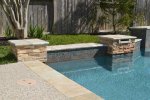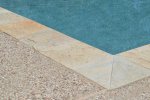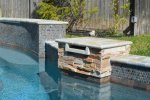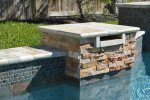We are getting bids for an ig pool, gunnite, 18k gallons, 33x16, 3.5-6ft deep, spa, waterfall with weeping rock wall, oklahoma flagstone, pepple tech interior, etc etc in north Texas. One builder strongly suggests swg while another says they are only doing 10% swg and recommends chlorine with added borate or chlorine with ozone generator (I have noted a lot of anti -ozone sentiment in the forums and understand the bias).
I'm looking for a good article or discussion that investigates true pros and cons. What are the finances - ie, How much is the chlorine cost over time vs real cost of replacing swg in 3-5 years? What is the real risk of corrosion from the salt? How much time and frustration will swg prevent in pool upkeep and chemical monitoring? Are swg owners unhappy or do more people wish they had swg? I have not found this comparison so far on the forum, but I may not have searched back far enough.
This is the big hold -up for us starting our pool construction - we want to make sure this is well thought-out. We are 1st timers to a home pool.
I'm looking for a good article or discussion that investigates true pros and cons. What are the finances - ie, How much is the chlorine cost over time vs real cost of replacing swg in 3-5 years? What is the real risk of corrosion from the salt? How much time and frustration will swg prevent in pool upkeep and chemical monitoring? Are swg owners unhappy or do more people wish they had swg? I have not found this comparison so far on the forum, but I may not have searched back far enough.
This is the big hold -up for us starting our pool construction - we want to make sure this is well thought-out. We are 1st timers to a home pool.





